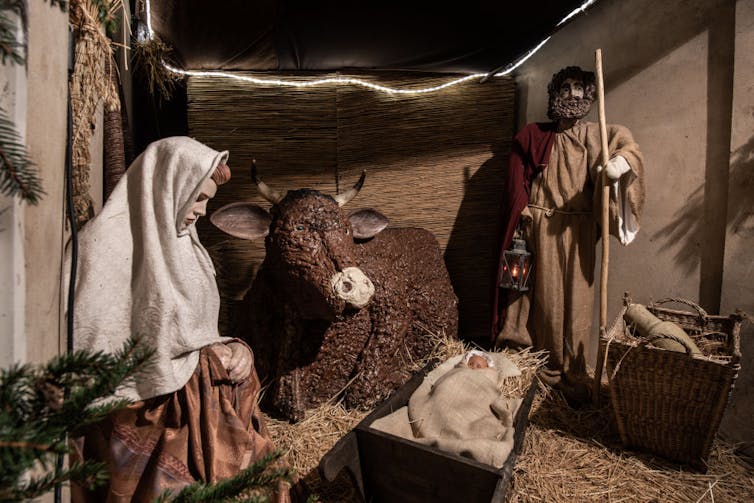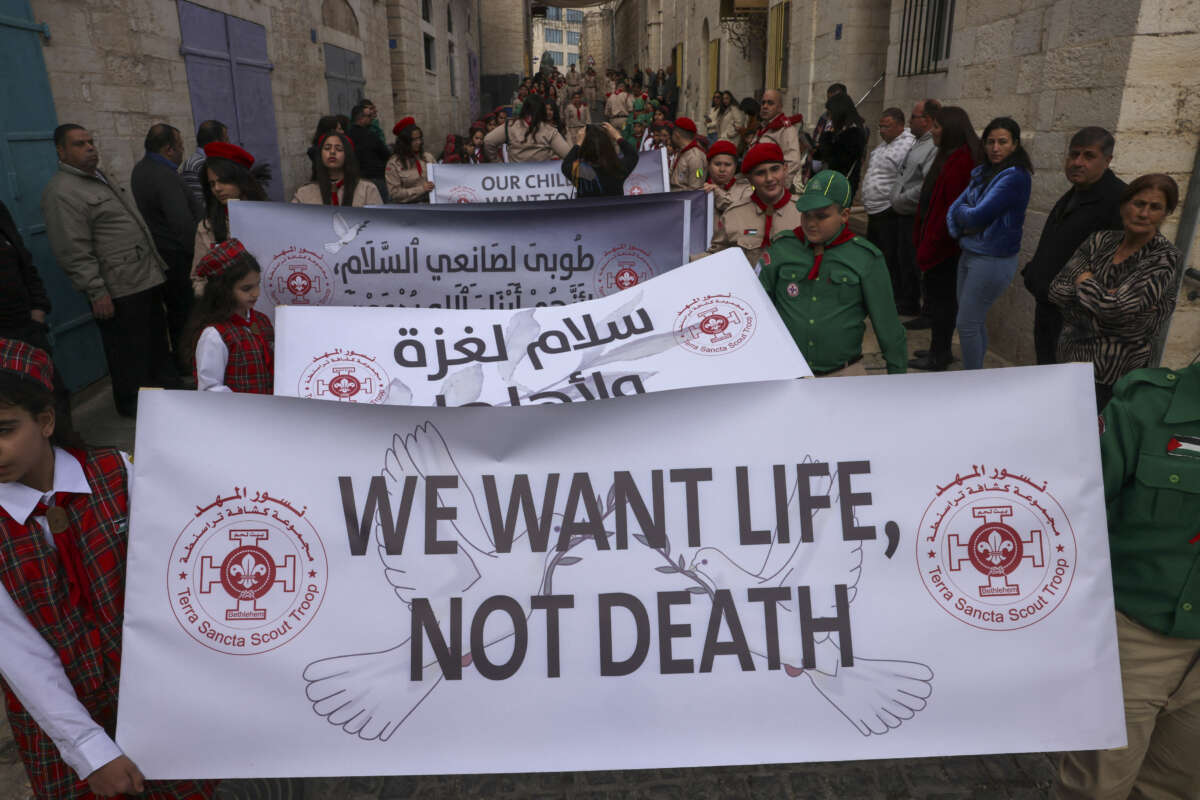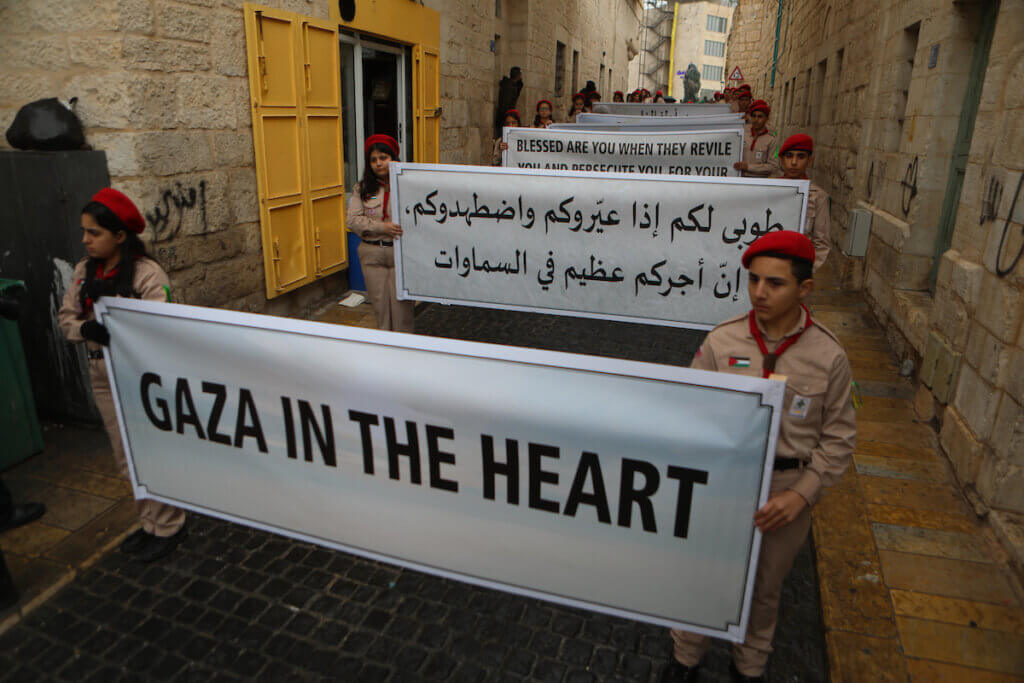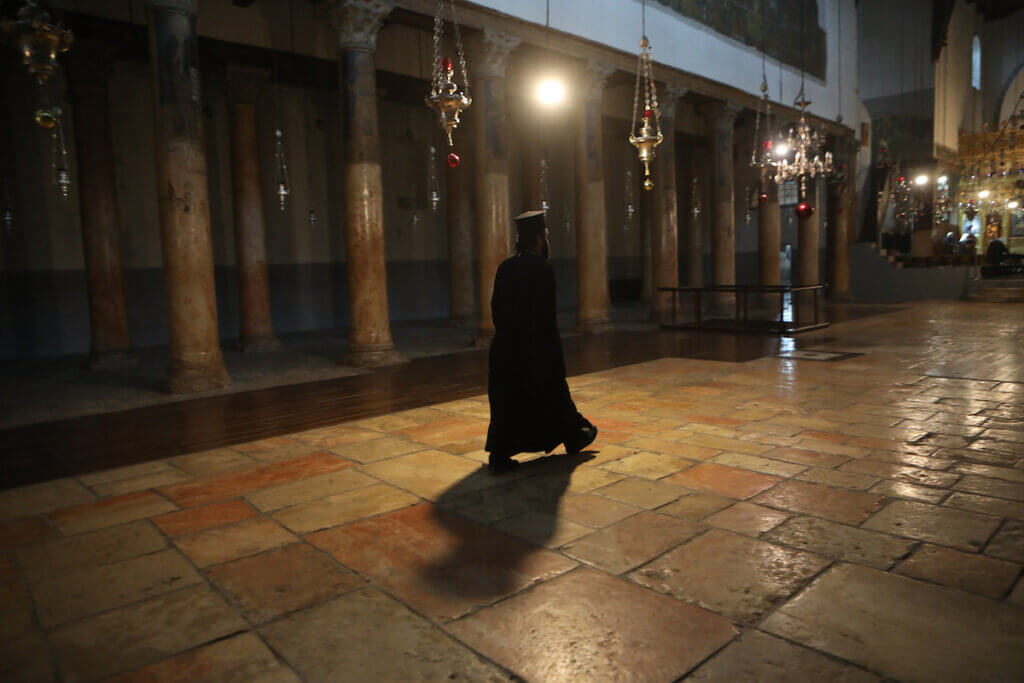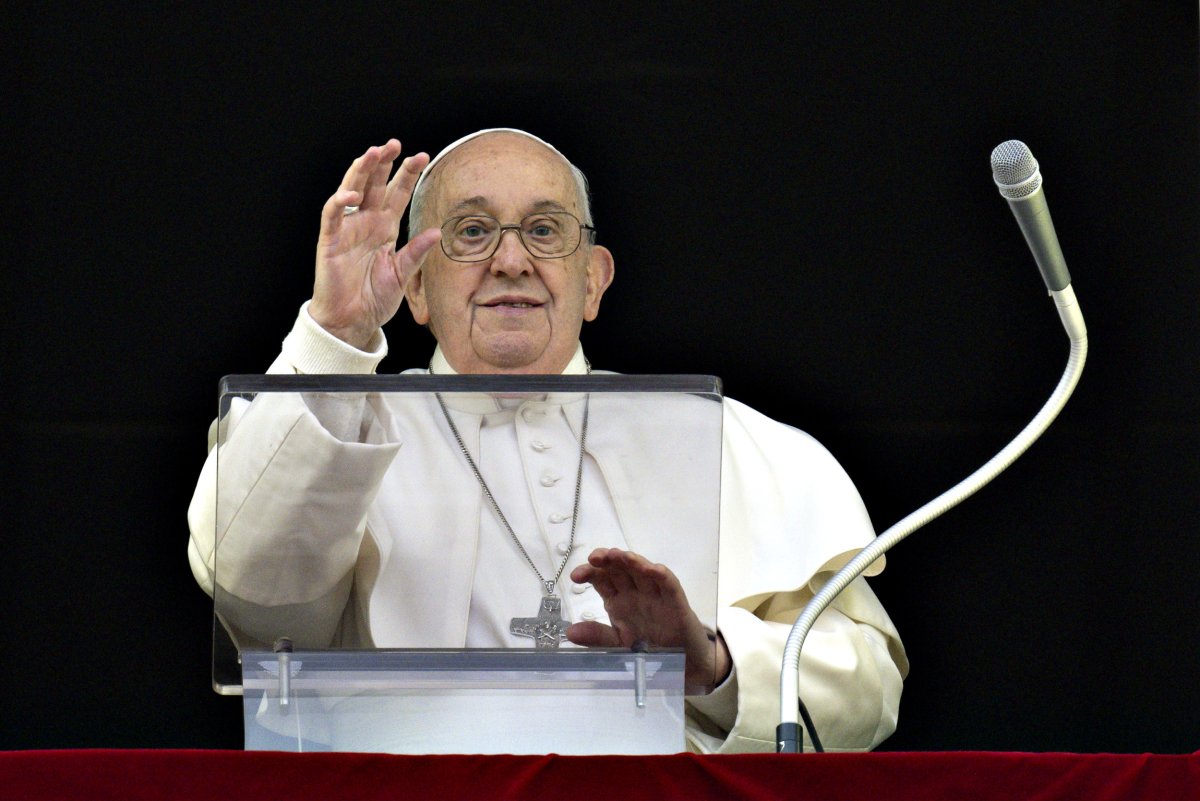Truthout’s December fundraiser is our most important of the year and will determine the scale of work we’ll be able to do in 2025. Please support us with a tax-deductible donation today.
Over the past 14 months, I have watched in horror as fellow Palestinians in Gaza have been subjected to Israel’s relentless bombardment — targeting refugee camps, residential neighborhoods, schools, hospitals, universities and bakeries — and forced to live the nightmare of homelessness in leaky tents without food, water or medical care. I have listened to friends and family in the West Bank and East Jerusalem talk about their despair and describe the daily terror they are subjected to at the hands of the Israeli military and armed settlers, whose aim is to get them to leave their homes and land.
Meanwhile in the U.S., our elected officials are now on holiday recess, celebrating Christmas with their families, friends and loved ones in the warmth of their cozy homes — despite their direct responsibility for facilitating the massacres and starvation of Palestinians in Gaza, the displacement of over a million residents in southern Lebanon, and the recent Israeli bombardment of Syria and Yemen.
Palestinian families in Gaza will be huddling in freezing cold tents shivering as they mourn the loss of loved ones and await their turn to be killed by a U.S.-supplied bomb or burned alive in their tents. As President Joe Biden celebrates his last Christmas in the White House with his son Hunter, Palestinians will still be searching with their bare hands for their children that remain missing under the rubble.
Under the watchful eyes of U.S. lawmakers, Israeli forces have killed more than 17,000 Palestinian children in Gaza and 169 children in the West Bank since October 7, 2023. According to the Gaza Government Media Office, nearly 26,000 children are now without one or both parents. A recent report by the United Nations says that Gaza is home to the largest number of amputee children in modern history.
Defense for Children International-Palestine said in its report, “Targeting Childhood: Palestinian children killed by Israeli forces and settlers in the occupied West Bank,” since October 7, 2023, Palestinian children in the West Bank are being killed by the Israeli military at the rate of one child every two days. During the past 14 months, nearly 800 West Bank Palestinians were killed by the Israeli military and armed settlers and close to 12,000 arrested and imprisoned, according to the Palestinian Prisoners Club, a prisoners’ rights group.
Palestinians wonder: What would it take to stop the massacres and end this nightmare? What did Palestinians do to deserve the horror being inflicted daily on their families? Why do Palestinians have to pay the price for Europe’s war crimes? And does Israel really think it can erase us; annihilate our cities; steal our lands; torture, imprison and kill our children; obliterate our cultural heritage; and wipe us off the face of the Earth?
Christmas in the Holy Land Is Magical
I am a descendant of Palestinian Christian Nakba survivors from the Old City of Jerusalem. Although I have deeply rooted Palestinian Christian Eastern Orthodox ancestry, and I wholeheartedly embrace the holidays and traditions of my ancestors, I am mainly a cultural Christian. I feel very much at home with my Palestinian sisters and brothers, regardless of whether they follow any religion.
Before the 1967 War, I spent my childhood in the Old City of Jerusalem. Each year, I would await the arrival of Christmas with great anticipation. I have vivid memories of the last magical Christmas I had with my grandparents in Jerusalem, when I was barely 11 years old.
My grandfather was the Mukhtar (literally, the chosen), the head of the Eastern Orthodox Christian Arab community in Jerusalem, which he dutifully served for over 50 years, as his father had done before him and his eldest son after him. In 1948, after my grandparents’ expulsion from their home in the Katamon Quarter of West Jerusalem, and because of my grandfather’s position in the church, my family was given residence inside the Greek Orthodox Convent, which abuts the walls of Mar Ya’coub (St. Jacob’s Orthodox Church) and the Church of the Holy Sepulcher. From the convent’s rooftop the view of the Mount of Olives, the Dome of the Rock, the al-Aqsa Mosque, and the Church of the Holy Sepulcher overwhelmed my 11-year-old eyes every time I gazed in the distance.
In 1966, in the run up to Christmas, I remember accompanying my grandfather as he went about performing his official duties and preparing for the celebrations and festivities of the season. With him, I lit candles at Jesus’s tomb inside the Church of the Holy Sepulcher and I visited church dignitaries, family members and even the Batrak, the grand old Patriarch of the Greek Orthodox Church in Jerusalem, whose hand I had to kiss after he placed around my neck a gold chain with a black and gold cross. Inside it was a wood splinter that my grandfather told me came directly from the cross of Jesus Christ.
I remember being mesmerized by the chanting, the carols on Christmas Eve, the incense, and the prayers in Arabic and ancient Greek. And I will never forget the Christmas dinner that my grandmother prepared: keftas and kababs, hashwet jaaj (chicken with rice and pine nuts) and koosa mahshi (stuffed zucchini), and mezze plates as far as the eye could see, including hummus, baba ghanouj, stuffed vine leaves, glistening black olives, braided white cheese, glossy vegetables, plump nuts and lush, juicy fruits.
Christmastime in the Old City of Jerusalem was one of the most beautiful experiences imaginable. But the next year, the 1967 War broke out.
It was the last Christmas I spent in Jerusalem, and the last time I saw my grandparents.
Palestinian Christians in the Holy Land Are Not Okay
The Palestinian Christian community in the Holy Land — the oldest Christian community in the world, with ancestors dating back to the first followers of Christ — face numerous challenges, including daily harassment by settlers, bans on public Christmas trees, spitting on priests, bombings of churches and attacks on Christian clergy. Several family members have asked the same question: “Where’s the outcry from Christians in the West?”
Palestinian Christians are angry at the World Council of Churches and its “Statement on the Escalating Crisis in Gaza,” released this past June at a meeting in Bogota, Colombia. Kairos Palestine, a Christian Palestinian Movement, called the statement “neither accurate, nor adequate” for refusing to use the word genocide and failing “to mention Israel’s 7-decades settler colonial regime, apartheid and prolonged occupation with total impunity as the root cause and the context that laid the grounds for the events of 7 October and the ensuing genocide against the Palestinians in Gaza and the grave escalation of Israel’s atrocities in the West Bank, including East Jerusalem.”
Palestinian Christians are furious at Evangelicals and decry the more than 10 million Christian Zionists in the U.S. who believe that their support of Israel at any cost is a fulfillment of a divine promise, even if it means committing genocide against the Indigenous Palestinian inhabitants of the land. And they dread the arrival of Donald Trump’s appointee for the U.S. ambassadorship to Israel — ultra-Zionist evangelical Christian former-Gov. Mike Huckabee of Arkansas. Huckabee, an advocate of West Bank annexation and a proponent of Greater Israel, has said there was “really no such thing as a Palestinian” and that “God gave historic Palestine to the modern state of Israel.”
In a November 9 interview in Al Jazeera, Khalil Sayegh, a Palestinian Christian resident of Gaza City who was able to leave and now lives in Washington, D.C. said, “Everyone I speak to who’s currently sheltering at the St. Porphyrius Church is looking to leave Gaza.” He added, “The majority of the houses in the north, where the Christians lived, have been bombed. Everything is destroyed. People have no reason to stay.”
Lamenting the silence of Christians in the West, Sayegh said, “We’re used to our brothers and sisters in the West totally ignoring us. It’s not new.”
Gaza City’s Greek Orthodox Church of Saint Porphyrius, which dates back to the 5th century CE, was hit in October 2023 by an Israeli strike, killing 18 of the 450 or so parishioners who took refuge in the church’s compound. Two months after that, two Christian women — Nahida and Samar Anton, a mother and a daughter — were shot dead by an Israeli military sniper as they crossed the courtyard of the Catholic Parish of the Holy Family on the other side of town. Since then, Israel’s atrocities continue to decimate the Christian community in Gaza, while destroying their historical roots in their homeland.
Christmas Is a Story About a Family Seeking Refuge
Now more than ever, Palestinian Christians see a close resemblance between their story of forced displacement from their homes and the story of Advent and Christmas — the injustice, oppression and displacement of Mary and Joseph to Bethlehem from Nazareth. Palestinian mothers today identify with Mary, the tragic loss of her son, and her resilience when confronted with discrimination against her newborn child.
The Rev. Munther Isaac, the Palestinian Christian pastor for the Evangelical Lutheran Christmas Church in Bethlehem, powerfully proposed during Christmas last year the idea that “Jesus is born this Christmas not in a stable in Bethlehem, but among the wreckage of war in Gaza. ‘God is under the rubble,’” he proclaimed.
On December 8, Reverend Isaac repeated last year’s plea in a post on X:
This Christmas, once again, we find ourselves reflecting on the meaning of Christmas through the image of Christ in the Rubble. Christ is still under the rubble in Gaza, as children are still being pulled from under the rubble in Gaza. It is heartbreaking that we are still calling and pleading for a ceasefire. Decision makers seem to be content with this war continuing as long as it has. They have decided that Palestinians are dispensable. … It is literally hell on earth in Gaza. … We insist: we see the image of Jesus in every child killed. They are precious to God.
How can we have a joyous Christmas when our people are being massacred and are grieving the deaths of their loved ones?
Leaders of Christian churches in the Holy Land have released a joint Christmas message that calls for an end to the war in Gaza. They called on the faithful to celebrate in a modest way and to keep the focus on the religious ceremonies and the true meaning of the birth of Jesus Christ.
Sami El-Yousef, the CEO of the Latin Patriarchate of Jerusalem, said in a statement: “Advent is certainly a time of waiting and preparation for the celebration of Jesus’s birth at Christmas. Celebrating an advent is a season of prayer, fasting, and repentance followed by anticipation, joy and hope. How can we still have hope amidst all the destruction, killing, and hatred?”
Pope Unveils Solidarity Nativity Scene, Removed After Backlash
In the Holy Land, where Palestinian baby Jesus was born in a manger and where Christ’s message of love, compassion and caring for the oppressed was first heard, Palestinians live their lives in daily fear under the gun of Israeli soldiers and armed settlers.
Last year, the Church of Nativity in Bethlehem canceled its Christmas festivities, put away its Christmas decorations, and instead of the church’s normal nativity scene, it placed baby Jesus on top of a pile of rubble inside the church.
On December 7, 2024, in a message of solidarity, Pope Francis unveiled the annual nativity scene in St. Peter’s Square, which this year featured baby Jesus laying on a Palestinian keffiyeh. The scene was created by Palestinian artists Johny Andonia and Faten Nastas Mitwasi from Bethlehem.
Following the unveiling, Ibrahim Faltas, Angeli Chapel deputy custodian of the Holy Land, praised Pope Francis’s message and said, “These nativity scenes remind us of those who, in the land where the Son of God was born, continue to suffer due to the tragedy of war.”
The nativity scene was removed by the Vatican five days later due to pro-Israel backlash. No official explanation was given.
Interviewed on December 13, Bethlehem artist Mitwasi explained, “The keffiyeh is not a symbol of violence. It is part of our cultural heritage. I feel that those who see it as a symbol of violence need to learn more about Palestinian history and culture.”
She added, “As a Christian Palestinian, I should have the freedom to create my nativity scene and use any Palestinian symbol I find suitable.”
Like all Palestinians — and people of conscience everywhere — Palestinian Christians are overwhelmed by the unending cruelty of the daily massacres and terror in Gaza, the West Bank and East Jerusalem. They are outraged at people and governments in the West — from political leaders to church leaders, and from mainstream media outlets to academia and the medical establishment — who have been silent in the face of an ongoing genocide, but openly and loudly show their support for Israel, a racist, nuclear-armed, apartheid state with expansionist ambitions that has been terrorizing and ethnically cleansing Palestinians and stealing their lands for over 76 years.
But Palestinians such as myself, irrespective of their faith, direct the bulk of their anger towards the U.S. for its complicity in the genocide and for its continued supply of the Israeli state with arms shipments and bombs — in violation of U.S. and international law — that are responsible for the deaths of tens of thousands of civilians, the destruction of 70 percent of homes in the Gaza Strip, and the displacement of nearly 90 percent of Gaza’s 2.3 million inhabitants. They also hold the U.S. responsible for shielding Israel from accountability by using its veto power to thwart and derail UN Security Council resolutions that call for an immediate ceasefire.
But through all the daily hell that Palestinians are experiencing, one thing that remains strong is their belief in a free Palestine. So when you gather with family and friends this holiday season, talk about the Palestinian struggle for freedom and equality — and remember those in Palestine who can no longer celebrate with their loved ones.

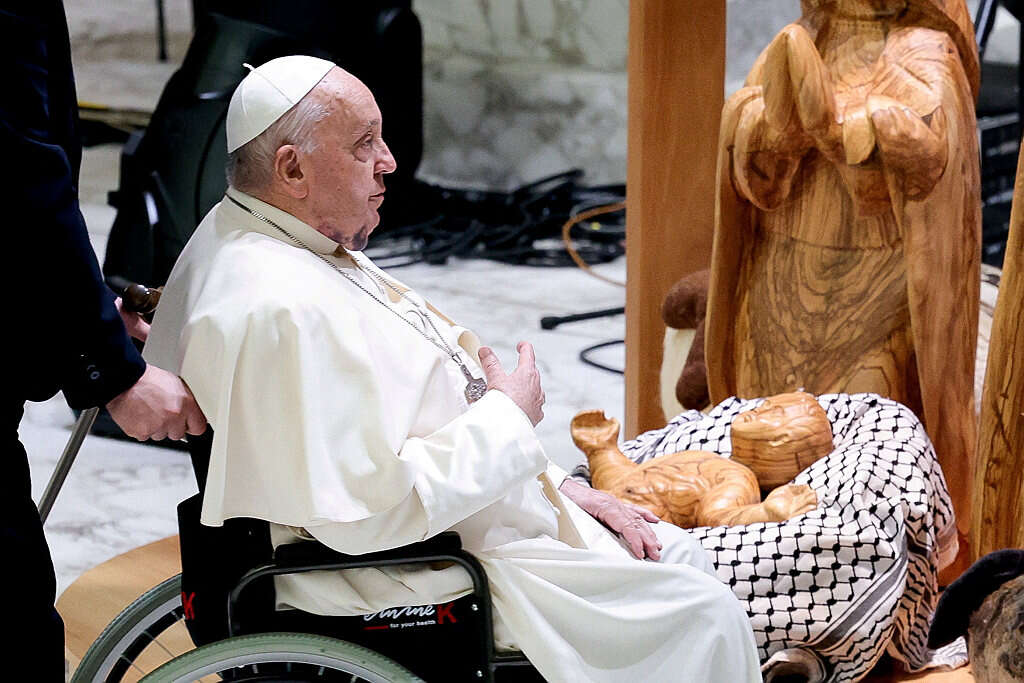


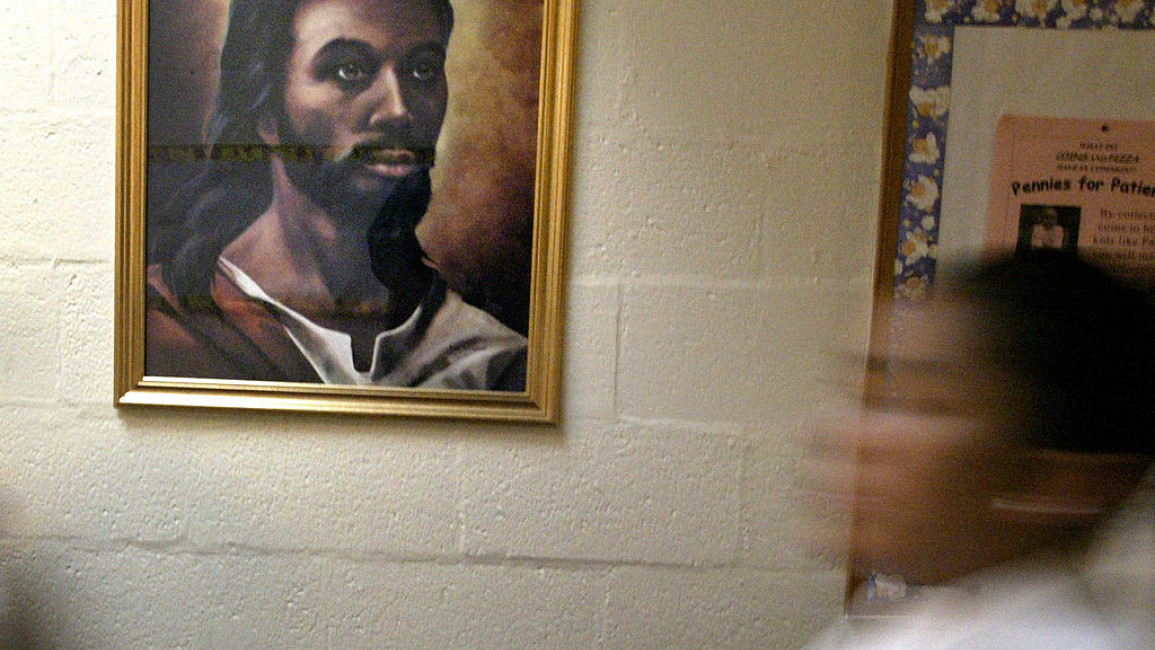
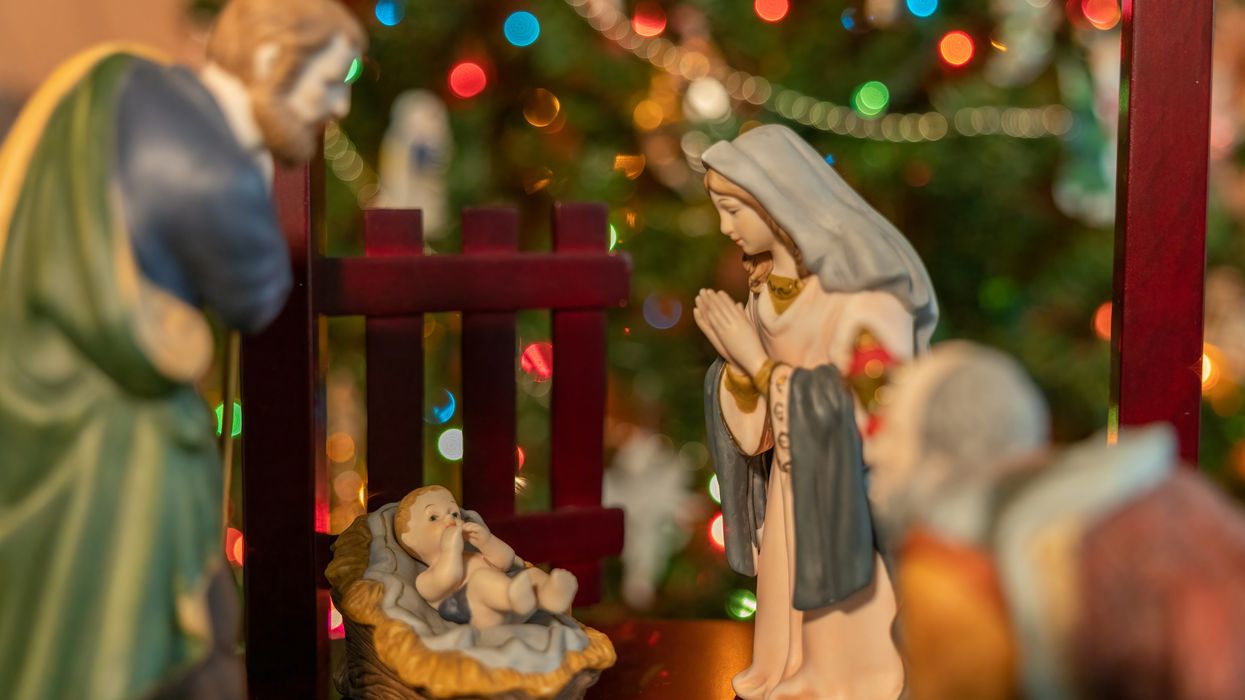

 The ATS is a funding partner of The Conversation US.
The ATS is a funding partner of The Conversation US.
